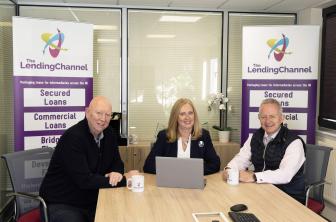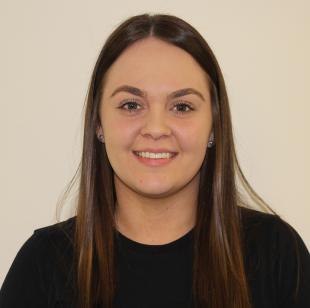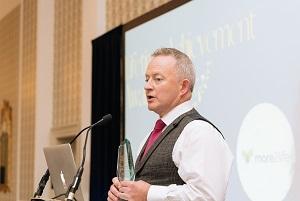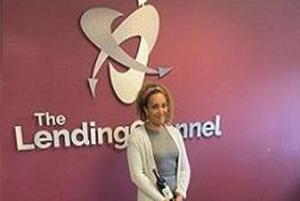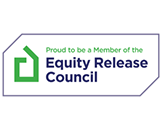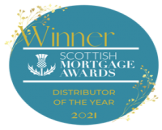Navigating real-life solutions for complex mortgage challenges
Securing a mortgage can often feel like navigating a maze with unforeseen twists and turns. If you've found yourself entangled in complex mortgage situations, rest assured, you're not alone! Many individuals face unique challenges when seeking financial solutions.
In this guide, we unravel the complexities surrounding second-charge mortgages, providing you with a roadmap to navigate these intricate scenarios.
Understanding the basics
A second-charge mortgage, often referred to as a secured loan or second-charge loan, involves using the equity in your property as collateral.
Unlike a remortgage, where the existing mortgage is replaced, a second charge mortgage is an additional loan secured against the property. This allows homeowners to access a lump sum without affecting their primary mortgage.
How second mortgages work
.png)
When individuals acquire a home or property, they typically secure a home loan from a lending institution that uses the property as collateral.
This home loan is commonly known as a mortgage, specifically a first mortgage. The borrower is obligated to repay the loan through monthly instalments, comprising both a portion of the principal amount and interest payments. As the homeowner consistently meets their monthly payments, the property often appreciates in value.
Second mortgages are often deemed riskier because the primary mortgage holds priority and is settled first in the event of default.
The disparity between the home's current market value and any outstanding mortgage payments is referred to as home equity. Homeowners may opt to leverage this home equity to finance other projects or expenditures. The loan obtained against the home equity is a second mortgage, as the borrower already has an existing first mortgage. The second mortgage is typically a lump-sum payment disbursed to the borrower at the loan's commencement.
Similar to first mortgages, second mortgages necessitate repayment over a designated term, featuring either a fixed or variable interest rate based on the agreed-upon loan terms with the lender. The borrower must fully settle the loan before considering another mortgage against their home equity.
Using a mortgage calculator proves beneficial for budgeting these expenses.
Reasons for getting a second mortgage
Several factors might lead someone to consider taking out a second mortgage:
- Difficulty obtaining unsecured borrowing
If securing unsecured forms of borrowing, like a personal loan, proves challenging, especially for self-employed individuals.
- Deterioration in credit rating
If your credit score has declined since the inception of your first mortgage, remortgaging to cover your existing loan and an additional one might result in a higher overall interest rate. Opting for a second mortgage allows you to pay the higher rate and extra interest only on the new borrowed amount.
- High early repayment charge
In cases where your current mortgage entails a substantial early repayment charge, opting for a second charge mortgage might be more cost-effective than remortgage to release equity.
The suitability of these scenarios depends on individual circumstances. If you're current on your mortgage payments, exploring a further advance from your existing lender with better terms could also be a viable option.
Common complex mortgage scenarios
Securing a mortgage isn't always a straightforward path, particularly when faced with distinctive challenges. The landscape of mortgages introduces complexities that deviate from the norm.
Recognising and understanding these prevalent complex mortgage scenarios is essential for individuals seeking financial solutions tailored to their specific circumstances.
- Credit challenges
Facing credit challenges is a common hurdle for many aspiring homeowners. Whether it's a history of late payments or other credit issues, securing a mortgage might seem intricate.
Overcoming these challenges involves strategic planning and exploring specialised solutions to pave the way for a successful mortgage journey.
- Unconventional income streams
For those with unconventional income sources like freelancers and consultants, traditional mortgage processes may not seamlessly align.
Demonstrating financial stability and showcasing the sustainability of income become focal points in these scenarios. Innovative approaches are often necessary to prove the borrower's ability to meet mortgage obligations successfully.
- Property issues
Certain property-related challenges can add complexity to the mortgage process, especially for properties with unique features or non-standard construction.
Understanding how these factors impact mortgage eligibility is vital for individuals seeking financing for their distinct property situations.
- Self-employment challenges
Self-employed individuals encounter unique challenges when applying for a mortgage. Documenting income, proving financial stability, and aligning with lenders who understand the intricacies of self-employment become pivotal.
Navigating the mortgage landscape as a self-employed individual requires a nuanced approach tailored to the specific needs of this demographic.
- Debt-to-income ratio concerns
The debt-to-income ratio, a key metric in mortgage assessments, can pose challenges for applicants. Balancing existing debts with mortgage obligations requires careful consideration.
Individuals with high levels of existing debt may encounter hurdles in demonstrating their ability to take on additional financial responsibilities.
Overcoming challenges with Complex Mortgages: Tips and tricks
Starting the pursuit of a mortgage isn't always a straightforward path, especially when confronted with unique challenges.
However, equipped with the right tips and strategies, you can adeptly navigate the complexities, enhancing your chances of achieving mortgage success.
|
Challenges |
Tips |
Tricks |
|
Credit challenges unveiled |
Tip: Start by obtaining and reviewing your credit report. |
Trick: Work with credit repair services if needed to address discrepancies. |
|
Mastering unconventional income |
Tip: Clearly document all income sources, providing a comprehensive financial picture. |
Trick: Engage with lenders familiar with unconventional income situations. |
|
Property peculiarities |
Tip: Understand how unique property features impact mortgage eligibility. |
Trick: Seek expert advice on financing options for non-standard properties. |
|
Self-employment strategies |
Tip: Keep meticulous records of income and business financials. |
Trick: Leverage the expertise of lenders experienced in self-employment cases. |
|
Debt-to-income balance |
Tip: Assess and manage existing debts before applying for a mortgage. |
Trick: Explore debt consolidation options to improve your financial standing. |
Remember, each challenge presents an opportunity for strategic solutions. By implementing these tips and tricks, you can proactively address hurdles, making your journey toward homeownership a smoother and more successful one.
Risks and alternatives
Similar to your first mortgage, a second mortgage puts your home at risk if you fail to keep up with the payments. In the event of arrears or non-payment, additional interest can accumulate, as is the case with any mortgage.
In the event of selling your home or repossession, the first mortgage takes precedence and is settled entirely before any funds are allocated to the second mortgage. It is crucial to note that the second mortgage lender retains the right to pursue you for any remaining shortfall.
Our commitment is to equip you with the knowledge needed to navigate the intricate landscape of mortgages. Remember, each decision shapes your homeownership journey. We are here to guide you at every step.
What happens if I can’t make the repayments?
A second charge mortgage is a loan that is secured against your property, thereby putting your home at risk of repossession if you fail to meet the repayment schedule.
In the event of repossession, the proceeds from the property sale will be distributed among the secured lenders in the sequence of when the loans were issued. Consequently, the primary mortgage lender, holding the first charge, will be the first to receive payment, followed by the second charge lender.
Due to being in the secondary position, the second charge lender faces a higher risk of not being fully compensated in case of a shortfall. This is a key reason why second charge mortgages typically incur higher costs compared to standard mortgages – the increased risk they pose to lenders.
Case study: A Lifesaving Loan - Second Charge Mortgage for Debt Consolidation

Imagine having to juggle nearly £2,000 each month in various debt payments. That was the reality for our clients, who found themselves struggling to keep their household budget afloat.
Despite their best efforts to stay on top of things, their primary mortgage lender turned them down for additional help due to their high debt load.
They were teetering on the brink of missed payments, which could have spiralled into a damaged credit score.
Our solution
In came the lifeline – a second charge mortgage tailored to their needs:
- Loan Amount: £95,500
- Interest Rate: 8.99% (fixed for 5 years)
- Term: 12 years
- Monthly Payment: £1,155
The outcome
Thanks to this savvy financial move, our clients slashed their monthly debt payments significantly. With their previous payments nearly halved to £1,155, they started saving a substantial £750 every month. This not only eased their budgeting woes but also kept their credit profile from taking a hit.
This story isn't just about numbers; it's about finding breathing room in your budget and peace of mind in your life. Our clients found a solution that worked wonders, proving that with the right help, you can chart a course back to financial stability—even when the waters get rough.
Would remortgaging be a better option for me?
The decision between opting for a second charge mortgage or pursuing a remortgage to access additional funds hinges on your specific circumstances. If your current mortgage rate is exceptionally low, retaining it while securing a second-charge mortgage for additional borrowing might be a viable option.
However, it's crucial to factor in potential early repayment charges (ERCs) associated with your existing mortgage if you choose to remortgage before the conclusion of a fixed-rate period. While ERCs can be costly, they often diminish with each passing year of the deal.
Remortgaging may prove to be the better choice if you can secure a more economical rate compared to your current one. This approach not only saves on costs but also simplifies matters by having only one loan secured against the property.
If neither remortgaging nor obtaining a second charge mortgage aligns with your preferences, you may explore the option of a 'further advance.' This involves securing an additional loan from the same lender as your main mortgage, typically at a higher interest rate. While a further advance operates similarly to a second charge mortgage by being secured against your property, it involves only one lender.
The Lending Channel's approach to complex mortgages cases
Discover how The Lending Channel specialises in addressing unique mortgage challenges, providing tailored solutions for homeowners seeking financial flexibility.
Our experienced team understands the intricacies of second charge mortgages, ensuring a seamless and personalised experience. Asking for advice from a trusted broker can be helpful if you are looking into this kind of mortgage. Our expert team at The Lending Channel can help you go through your financial situation and assess your suitability for this type of mortgage.
Ready to explore your mortgage options or have questions about second charge mortgages?Contact The Lending Channel today, and let our experienced team guide you through the process. Your homeownership goals are within reach, and we're here to help you every step of the way.

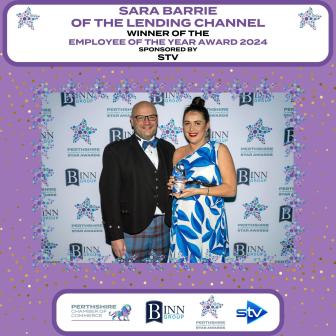


.jpg)

.png)
